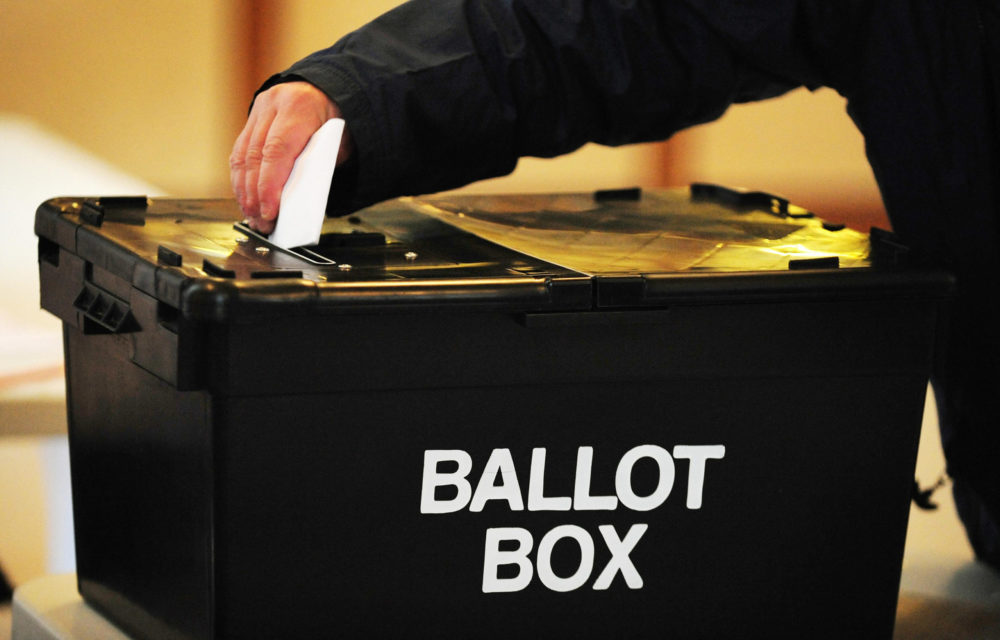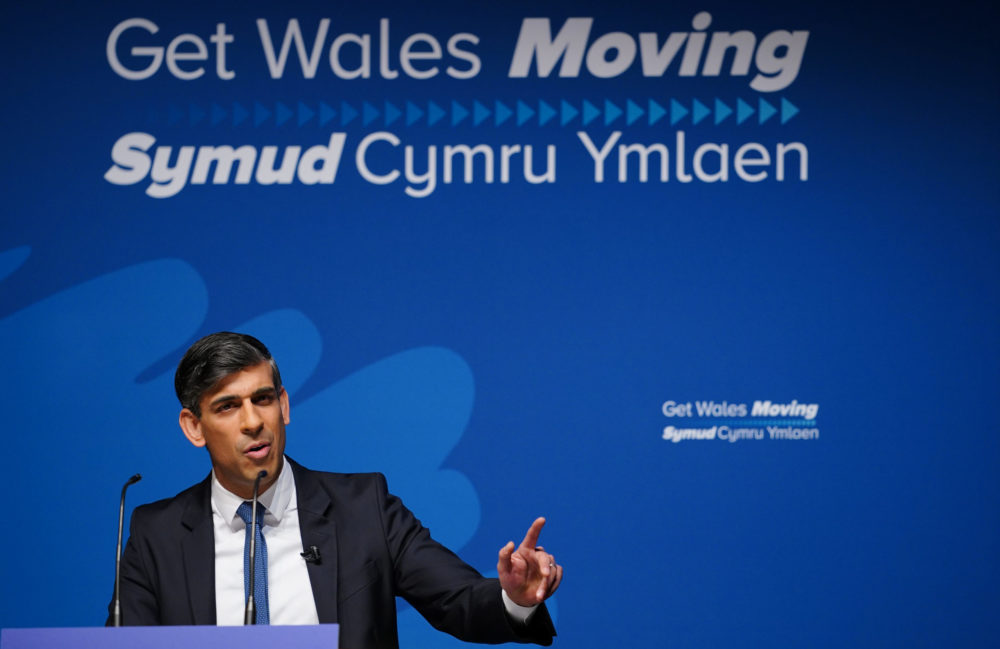Manifesto analysis: What are the parties offering to Wales?

New Wales Research Team
Six weeks ago, the UK Prime Minister faced the torrential rain to inform us all that he was calling a general election. Many were caught off guard, not least members of his own party, and while the campaign has been longer than usual, time is almost up.
The UK heads to the polls tomorrow, and all that remains between now and then will be some soundbites and pleas from all parties to not only vote, but to vote for them.
But who should you vote for? As New Wales said in our online launch article last week, our aim is to filter out the rhetoric and analyse policies that will or could affect Wales for better or for worse.
We look past the personalities to take a stance that is as objective as possible, based on what the different parties are promising with their manifestos, pledges or contracts with the nation.

Devolution
Firstly, understanding what is proposed regarding devolution is key to the rest of the policy breakdowns. Wales’ devolution settlement is complex, so we focus on this first to explore how relevant the remaining policies will be to people in Wales.
Labour are committed to devolution in Wales and offer further devolution of powers to the Senedd including youth justice and probation services (while reserving justice as a whole) and employment support funding.
Generally, their promise is to ensure more collaboration between the Labour-run Senedd and a proposed Labour-run Westminster, to apply their five missions across Wales as well as the rest of the UK.

Conservatives offer no further devolution of powers in their manifesto, maintaining the status quo on the surface. However, they explicitly mention introducing legislation to override decisions they disagree with made in the Senedd under the Labour-Plaid co-operation agreement including the Trade Union Act (Wales) 2016.
Plaid Cymru proposes a much stronger devolution settlement bringing taxation, natural resources, transport, steelmaking, employment law, welfare and benefits into the direct control of the Senedd, away from Westminster. Eventually, their proposal leads to an independent Wales.

Reform seeks to bring devolved powers back to Westminster including the Welsh language (by removing public funding for S4C), health (by introducing a mandatory private medical insurance scheme), and energy and natural resources (by paving the way for shale gas exploration in north Wales).
Liberal Democrats commit to devolving the same powers that Labour have promised including youth justice, probation services, but they go further proposing to devolve prisons and policing as well, recognising the divergence of Wales’ laws and needs from those of England and give Wales the right to create a distinct legal jurisdiction of its own. All rail services and infrastructure would be devolved to Wales.
And the Greens promise to devolve all justice and policing to Wales, and eventually lead to a vote on Welsh self-determination, supporting an independent Wales.

Policies for Wales
Labour states their “mission-focused” manifesto will apply their 5 missions to Wales as well as the rest of the UK: kickstarting the UK economy, with policies akin to their Make Brexit Work pledge, renegotiating trade agreements and promoting UK businesses and industries around the world including Welsh farming and semiconductor production.
Conservatives promise £80 million for the Port Talbot steelworks, and making Port Talbot a freeport. Further proposed infrastructure projects in Wales include a nuclear reactor at Y Wylfa, electrification of the North Wales Main Line railway with £1 billion of investment, the M4 relief road, a third Menai crossing and the widening of the A55 and A438.
As the “Party of Wales”, all Plaid Cymru’s policies in their manifesto are aimed at Wales. Notable policies include bringing back the £4 billion owed to Wales for the failed HS2 project, aligning with the Scottish devolution settlement of keeping profits from Welsh Crown Estate land in Wales, and windfall taxes on oil and gas companies to raise significant sums of money to reinvest in Welsh infrastructure and public services.
Public service and welfare policies of note include an increase to child benefit of £20 per week, establishing a publicly-owned Welsh Energy company “Ynni Cymru”, high-speed internet across Wales, nationalisation of all transport, and more funding for the NHS including more rural GPs.

Reform policies that would affect Wales include an increase in UK defence spending at the expense of other public services, scrapping renewable energy subsidies and net zero targets, and removing all environmental obligations on farmers. It is worth noting that the Reform manifesto includes unaccounted UK spending commitments totalling £141 billion.
Liberal Democrats (along with Plaid Cymru) propose to rejoin the EU Single Market which would improve the Welsh economy by £2 billion per year. Other commitments include a rural fuel duty relief for Wales reducing fuel prices by 5p per litre, an increase in renewable energy infrastructure across the UK including Welsh energy production, and ensuring “fair funding” for Wales increasing the funding by £47.50 per person to Wales, totalling an extra £150 million.

Greens promise to build 12,000 new homes each year specifically in Wales, bring Wales equal with Scotland in terms of devolved funding, and invest in Welsh energy and decarbonising infrastructure using gains from a wealth tax on millionaires and billionaires.
They would stop the nuclear reactor construction at Y Wylfa and introduce a carbon tax on oil and gas exports and imports including those from Milford Haven. They commit to a minimum wage of £15 per hour, abolishing the two-child benefit cap, increasing Universal Credit by £40 per week, introducing a Universal Basic Income and ensuring free school meals to all children in Wales, including during holidays. They claim these policies can be paid for by economic benefits of rejoining the EU, cancelling Trident and recouping the money spent on its upkeep.
Will Labour be able to ‘make Brexit work’ for Wales? Would the Lib Dems ‘fair funding’ for Wales make a difference to families across our nation? Can Plaid in Westminster convince the new Labour government to return the misassigned £4bn HS2 funding? And, how would the Greens fund their uplift in Universal Credit?
New Wales’ analysis of the manifestos has highlighted that these four parties are proposing policies of most benefit to the people of Wales.
Support our Nation today
For the price of a cup of coffee a month you can help us create an independent, not-for-profit, national news service for the people of Wales, by the people of Wales.






Reform will simply seek to extend the Imperium over the whole of Britain. Out and out anglo-supremacists and nationalists. That Welsh people would vote for their own extinction by voting for these blowhard charlatans is beyond me. Worse than the Tories. There are too many Welsh people who harbour cultural chauvinism or who yield to political bias when it comes to their own nation. What damned fool does not want democracy for their nation? And there are others who have fallen for the biggest “project fear” in history. We’ll never get anywhere untill we learn to govern our nation for… Read more »
‘What damned fool does not want democracy for their nation?’
The hard reality is that there are considerable numbers of people living in Wales who count ‘Britishness’ as more significant for them than any distinctive sense of ‘Welshness’.
And that sort of sentiment isn’t confined to ‘blow-ins’ from England who’ve opted for life in the pleasant environment which parts of Wales offers them. I’ve come across folk born and bred in Wales who also think that same way.
In my experience, lots of those who have moved here are very supportive. Don’t be too quick to judge. There’s enough Welsh people who harbour their own chauvinisms. Been the case for generations.
Agree entirely. That was the point that I was nudging towards!
Todays date 4 July 1776 was the American declaration of independence from the English empire not as they call it British 16 signatures where of people of WELSH HERATIGE making them the largest ethnic group to sign it also there is Writing in Welsh on the American statue of George Washington we should a leave out of their book and get the hell out of the U K